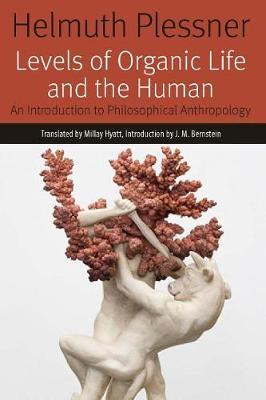Levels of Organic Life and the Human

Levels of Organic Life and the Human
A modern classic, this powerful and sophisticated account of embodiment was first published in German in 1928 and now appears in English for the first time. With reference simultaneously to science, social theory, and philosophy, Plessner shows how life can be seen on its own terms to establish its own boundaries. Plessner's account of how the human establishes itself in relation to the nonhuman will invigorate a range of current conversations around the animal, posthumanism, the material turn, and the biology and sociology of cognition.
PRP: 260.40 Lei
Acesta este Prețul Recomandat de Producător. Prețul de vânzare al produsului este afișat mai jos.
234.36Lei
234.36Lei
260.40 LeiLivrare in 2-4 saptamani
Descrierea produsului
A modern classic, this powerful and sophisticated account of embodiment was first published in German in 1928 and now appears in English for the first time. With reference simultaneously to science, social theory, and philosophy, Plessner shows how life can be seen on its own terms to establish its own boundaries. Plessner's account of how the human establishes itself in relation to the nonhuman will invigorate a range of current conversations around the animal, posthumanism, the material turn, and the biology and sociology of cognition.
Detaliile produsului













